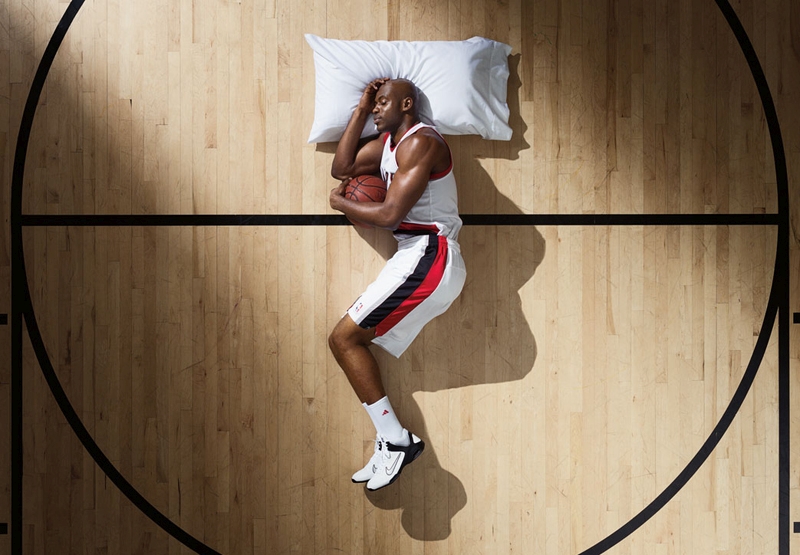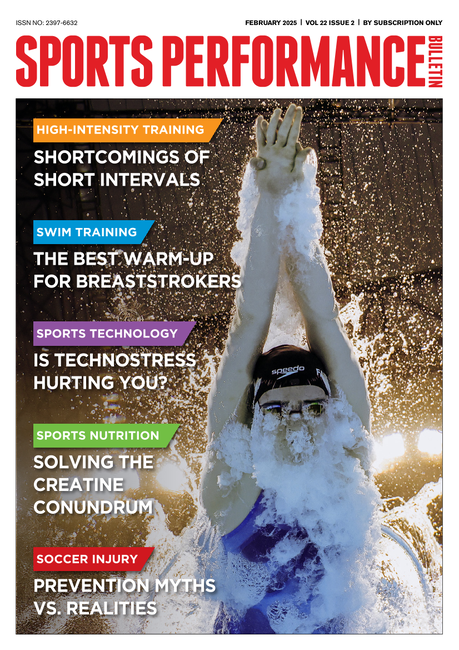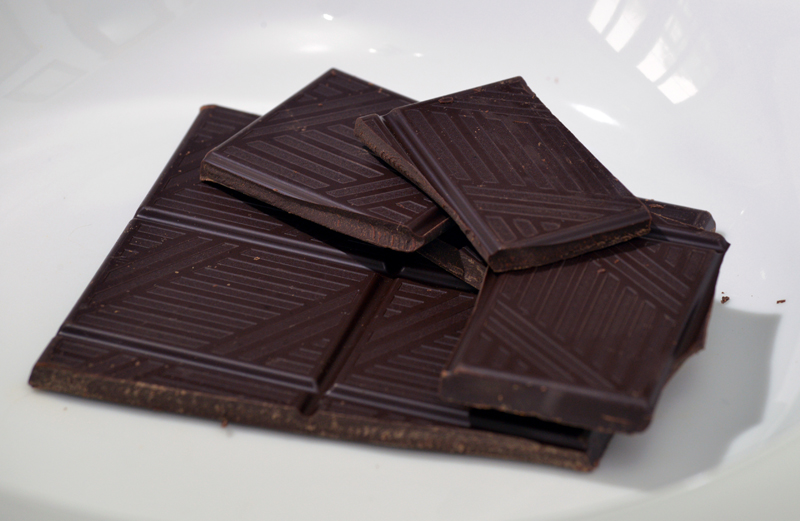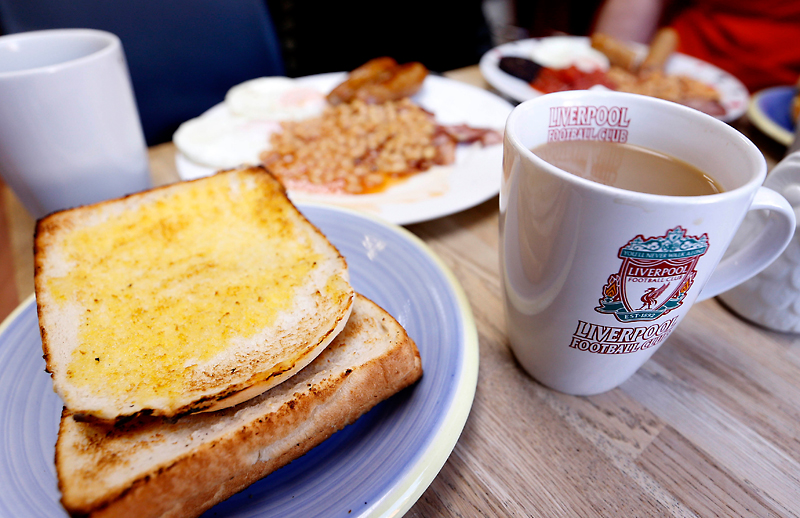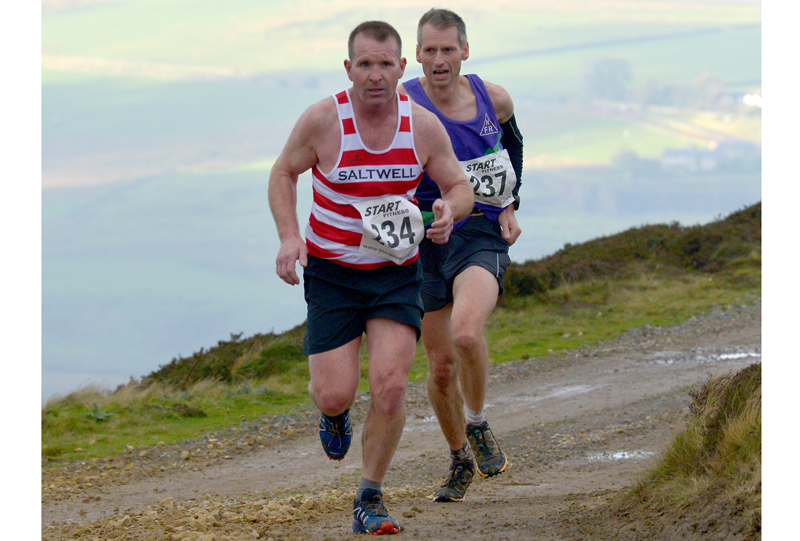You are viewing 1 of your 1 free articles. For unlimited access take a risk-free trial
Ultra training: sleep on it!

In recent years, sports scientists have discovered that sleep quality and the timing of the sleep-wake cycle (more technically known as the circadian rhythm) are hugely important factors that can affect sport performance(1-3). It’s now known that sleep and sport/exercise have a strong relationship, mutually influencing each other, positively or negatively. Get your sleep health right and performance is likely to be enhanced. However broken or insufficient sleep is not good for performance.
Sleep deprivation blues
Sleep deprivation is associated with higher rating of perceived effort (RPE) values, potentially leading to reduced performance, particularly in endurance events(4,5). In short, when you’re sleep deprived, you will feel like you’re working harder to sustain a given workload compared to when sleep amounts have been adequate.Research also suggests that sleep deprivation leads to a higher rate of injury(6), reduces muscle glycogen stores(7) and alters recovery after muscle damage induced by exercise(8). Acute sleep deprivation and chronic sleep restriction also induce alterations in glucose metabolism, with increases in insulin resistance and decreased insulin sensitivity(9). These changes in glucose and insulin metabolism means it becomes harder to regulate and optimise energy levels – both at rest and during exercise.
As if that lot weren’t enough, sleep deprivation and disruption of circadian rhythms increases levels of inflammation in the body (raising the likelihood of pain and soreness after hard/prolonged exercise) and also reduces the efficiency of the immune system, increasing the risk of upper respiratory tract infections (URTIs – coughs, colds, sore throats etc)(10,11).
Sleep and ultra runners
Given the importance of sleep health for endurance athletes, some scientists have been particularly interested in how ultra runners manage their sleep needs. This is because ultramarathon participation requires high training loads and long-duration training sessions, leading to high recovery needs, particularly relative to sleep; some researchers have suggested that to allow sufficient recovery, athletes undergoing heavy/prolonged training should sleep longer than most adults - between 9 and 10 hours per night(12). Moreover, some ultramarathons require runners to maintain their effort for durations longer than their usual wakefulness period, with nocturnal activity and brief, or sometimes no, opportunities for sleep. There is a suggestion that poor sleep habits and/or inadequate (or lack of) appropriate sleep strategies before a race could potentially exacerbate fatigue, and increase risk of injury, hallucinations and failure to finish. To help understand the sleep habits of ultra runners, a group of US and Canadian scientists have been researching this topic and their results have just been published (PLoS One. 2018; 13(5): e0194705).The research and findings
The aims of this study were to characterise habitual sleep behaviours in ultramarathon runners, and to examine strategies most commonly used to manage sleep before and during ultramarathons. To do this, 636 ultra runners were recruited to the study and answered a standardised questionnaire about their sleeping habits – not just in the run up to ultra events but during normal periods of training also. The key findings were as follows:- The ultra runners were found to sleep more on weekends and holidays (7–9 hours) than during weekdays (6–8 hours).
- Sleep patterns were mediated by work patterns; 19–25% of the runners reported napping during the day on work days, a figure that rose to 37–56% on non-work days.
- Almost a quarter (24.5%) of the participants reporting sleep disorders, with more women (38.9%) reporting sleep problems than men (22.0%). However, these sleep disorder figures are lower than the population as a whole.
- Sleepiness during the day was also assessed using the ‘Epworth Sleepiness Scale’. Over a third of the runners (37.6%) scored higher than 10 on this scale, reflecting excessive daytime sleepiness.
- Most of the study participants (73.9%) had a strategy to manage sleep preceding an ultramarathon, with 54.7% trying to increase their opportunities for sleep.
- Only 21% of participants reported that they had a strategy to manage sleep during ultramarathons, with ‘micronaps’ being the most common strategy specified.
Sports Performance Bulletin verdict
What can we conclude from these findings? Well, sleep durations among these ultramarathon runners were comparable to the general population (and other athletic populations), yet they reported a lower prevalence of sleep disorders. So although ultra runners may need more sleep, they might be getting it through more efficient sleep rather than longer hours in bed! The finding that over a third of the runners experienced daytime sleepiness is only notable as this is among the lowest rates encountered in athletic populations. The most likely reason for this was the high percentage of nappers in the population. When it came to the main sleep strategy to prepare for ultramarathons, getting some hours ‘in the bank’ was the most popular. This was achieved both by increasing sleep time at night and increasing daytime napping.Practical suggestions for improving sleep quality (and getting to sleep!)
- Minimise or avoid caffeine and alcohol use, especially in the evening.
- Don't eat large meals before retiring; avoid spicy or fatty foods such as cheese, as these take longer to digest.
- If you're suffering from sleep problems, try to increase your intake of magnesium-rich foods (beans, peas, lentils, nuts, seeds, whole grain breads and cereals, and green leafy vegetables); magnesium supplements may be also useful.
- Make sure your bed is comfortable; experiment with mattresses and pillows to increase sleeping comfort.
- Keep your bedroom well ventilated, quiet and cool (but not cold).
- Go to bed when you're sleepy-tired, not when it's time to go to bed by habit.
- Take the time to wind down before bedtime. Don't get involved in any kind of anxiety provoking activities or thoughts in the 90 minutes before bedtime.
- Avoid using a computer or viewing any device with a bright screen for an hour before retiring.
- Listen to soft, relaxing music that also contains the sounds of nature.
- Use a progressive muscular relaxation drill (tensing and relaxing the major muscle groups of the body).
- Meditate by focussing intently on one thought or feeling such as the cycles of breath in the body.
- Soak in a hot bath with 6-8 drops of essential oil.
- Sleep alone if the activity of your partner (eg snoring, turning over, sleep talking) disturbs you.
- Don’t avoid exercising in the evening, but try moving some of your sessions to the morning, which can help.
References
-
Eur J Appl Physiol. 2007;99: 331–341
-
Eur J Appl Physiol. 2009;106: 321–332
-
Sleep Med Rev. 2015;23: 1–9
-
Med Sci Sports Exerc. 2013;45: 2243–2253
-
Eur J Appl Physiol. 2009;107: 155–161
-
US Army Med Dep J. 2013; 98–108
-
Med Sci Sports Exerc. 2011;43: 1301–1311
-
Med Hypotheses. 2011;77: 220–222
-
Sci Transl Med. 2012;4: 129ra43
-
Clin Dev Immunol. 2013;2013: 1–14
-
Brain Behav Immun. 2015;47: 24–34
-
Sleep. 2011;34: 943–950
Newsletter Sign Up
Testimonials
Dr. Alexandra Fandetti-Robin, Back & Body Chiropractic
Elspeth Cowell MSCh DpodM SRCh HCPC reg
William Hunter, Nuffield Health
Further reading
Newsletter Sign Up
Coaches Testimonials
Dr. Alexandra Fandetti-Robin, Back & Body Chiropractic
Elspeth Cowell MSCh DpodM SRCh HCPC reg
William Hunter, Nuffield Health
Keep up with latest sports science research and apply it to maximize performance
Today you have the chance to join a group of athletes, and sports coaches/trainers who all have something special in common...
They use the latest research to improve performance for themselves and their clients - both athletes and sports teams - with help from global specialists in the fields of sports science, sports medicine and sports psychology.
They do this by reading Sports Performance Bulletin, an easy-to-digest but serious-minded journal dedicated to high performance sports. SPB offers a wealth of information and insight into the latest research, in an easily-accessible and understood format, along with a wealth of practical recommendations.
*includes 3 coaching manuals
Get Inspired
All the latest techniques and approaches
Sports Performance Bulletin helps dedicated endurance athletes improve their performance. Sense-checking the latest sports science research, and sourcing evidence and case studies to support findings, Sports Performance Bulletin turns proven insights into easily digestible practical advice. Supporting athletes, coaches and professionals who wish to ensure their guidance and programmes are kept right up to date and based on credible science.
